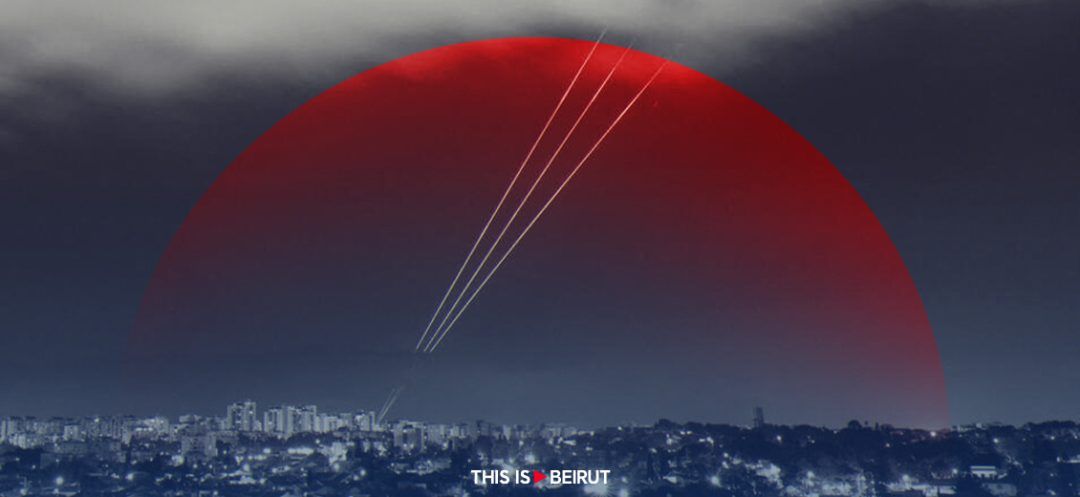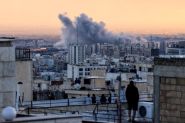- Home
- Middle East
- Jordan, a Component of the Win-Win Scenario

Listen to the article
[audio mp3="https://thisisbeirut.com.lb/wp-content/uploads/2024/04/We-are-currently-witnessing-a-new-kind-of-warfare-in-the-Middle-East.-Alongside-meticulously.mp3"][/audio]
We are currently witnessing a new kind of warfare in the Middle East. Alongside meticulously targeted aerial strikes, broader belligerent intentions are being disclosed ahead of time, often through media channels, and are even subject to behind-the-scenes negotiations to avoid or limit their impact. Furthermore, the timing of these actions is hinted at ahead of time through the implementation of practical measures, such as restricting airspace traffic. This was notably the case last January during the first American and British retaliation to Houthi attacks in the Red Sea.
Against this backdrop, the impact, on the ground, of the Iranian attack on Israel proved trivial, compared to the significant offensive resources that were deployed. How could it be otherwise when Iran's neighboring countries were informed of the strike 72 hours beforehand, as stated by the Iranian Foreign Minister on Sunday? This statement was corroborated by the Israeli Prime Minister's office, which revealed that Tel Aviv was notified of the operation by... Tehran!
Seemingly, this attack looked like a win-win scenario. Iran managed to save face and sought to reaffirm its ambition to position itself as a dominant regional power, a stance it has repeatedly emphasized since October 7th. Simultaneously, the Israeli military bolstered its standing by showcasing its efficiency and technological edge, notably in air defense capabilities. On the political front, once again, Israel has gotten back the strong support of international key players. As for President Joe Biden, just months away from the presidential election, he made sure to emphasize his unwavering commitment to safeguarding Israel's security. Even Jordan managed to score points by helping in countering the attack of the Iranian Revolutionary Guards.
A pivotal development of last night’s attack was Jordan's involvement in the Western defense framework. While the attacks were underway, the Islamic Republic swiftly reacted, by issuing direct threats against Amman. For the Kingdom of Jordan, it was crucial to pick a side, and its decision was dictated by the current circumstances. Since the bloody operation on October 7th, Jordan has been the target of sustained destabilization attempts orchestrated by the Iranian camp. Reliable Jordanian sources indicated on Sunday that since the beginning of the conflict between Israel and Hamas, Iran has persistently pushed Amman to get involved in the conflict, a request that the Hashemite Kingdom has firmly rebuffed.
Under the pretext of rampant drug trafficking orchestrated by armed factions, the situation along the Jordan-Syria border has been steadily deteriorating. This illicit trade, often intertwined with the smuggling of weapons, has heightened tensions in the region, leading to sporadic clashes along the border. These destabilization attempts came to the forefront when a series of massive popular protests erupted in the capital, ostensibly to express solidarity with the population of Gaza. However, the true nature of these demonstrations did not fool anyone, leading many observers and analysts to sound the alarm about the seriousness of the situation in Jordan. Deputy Prime Minister and Jordanian Minister of Foreign Affairs Ayman Safadi reiterated on Sunday that his country "will continue to take all necessary measures to safeguard its security and sovereignty."
The Hashemite Kingdom could be facing a critical moment as its survival is on the line amidst the growing expansion of the Iranian Revolutionary Guard's influence into new territories. This dynamic taps into a significant but often overlooked reality: at least half of Jordan's population is of Palestinian origin.
In such a context, the leading authorities in Amman needed to take a clear and unequivocal position to ensure the security and political support of the only camp able to safeguard the country's survival: The Western camp.
[audio mp3="https://thisisbeirut.com.lb/wp-content/uploads/2024/04/We-are-currently-witnessing-a-new-kind-of-warfare-in-the-Middle-East.-Alongside-meticulously.mp3"][/audio]
We are currently witnessing a new kind of warfare in the Middle East. Alongside meticulously targeted aerial strikes, broader belligerent intentions are being disclosed ahead of time, often through media channels, and are even subject to behind-the-scenes negotiations to avoid or limit their impact. Furthermore, the timing of these actions is hinted at ahead of time through the implementation of practical measures, such as restricting airspace traffic. This was notably the case last January during the first American and British retaliation to Houthi attacks in the Red Sea.
Against this backdrop, the impact, on the ground, of the Iranian attack on Israel proved trivial, compared to the significant offensive resources that were deployed. How could it be otherwise when Iran's neighboring countries were informed of the strike 72 hours beforehand, as stated by the Iranian Foreign Minister on Sunday? This statement was corroborated by the Israeli Prime Minister's office, which revealed that Tel Aviv was notified of the operation by... Tehran!
Seemingly, this attack looked like a win-win scenario. Iran managed to save face and sought to reaffirm its ambition to position itself as a dominant regional power, a stance it has repeatedly emphasized since October 7th. Simultaneously, the Israeli military bolstered its standing by showcasing its efficiency and technological edge, notably in air defense capabilities. On the political front, once again, Israel has gotten back the strong support of international key players. As for President Joe Biden, just months away from the presidential election, he made sure to emphasize his unwavering commitment to safeguarding Israel's security. Even Jordan managed to score points by helping in countering the attack of the Iranian Revolutionary Guards.
A pivotal development of last night’s attack was Jordan's involvement in the Western defense framework. While the attacks were underway, the Islamic Republic swiftly reacted, by issuing direct threats against Amman. For the Kingdom of Jordan, it was crucial to pick a side, and its decision was dictated by the current circumstances. Since the bloody operation on October 7th, Jordan has been the target of sustained destabilization attempts orchestrated by the Iranian camp. Reliable Jordanian sources indicated on Sunday that since the beginning of the conflict between Israel and Hamas, Iran has persistently pushed Amman to get involved in the conflict, a request that the Hashemite Kingdom has firmly rebuffed.
Under the pretext of rampant drug trafficking orchestrated by armed factions, the situation along the Jordan-Syria border has been steadily deteriorating. This illicit trade, often intertwined with the smuggling of weapons, has heightened tensions in the region, leading to sporadic clashes along the border. These destabilization attempts came to the forefront when a series of massive popular protests erupted in the capital, ostensibly to express solidarity with the population of Gaza. However, the true nature of these demonstrations did not fool anyone, leading many observers and analysts to sound the alarm about the seriousness of the situation in Jordan. Deputy Prime Minister and Jordanian Minister of Foreign Affairs Ayman Safadi reiterated on Sunday that his country "will continue to take all necessary measures to safeguard its security and sovereignty."
The Hashemite Kingdom could be facing a critical moment as its survival is on the line amidst the growing expansion of the Iranian Revolutionary Guard's influence into new territories. This dynamic taps into a significant but often overlooked reality: at least half of Jordan's population is of Palestinian origin.
In such a context, the leading authorities in Amman needed to take a clear and unequivocal position to ensure the security and political support of the only camp able to safeguard the country's survival: The Western camp.
Read more




Comments